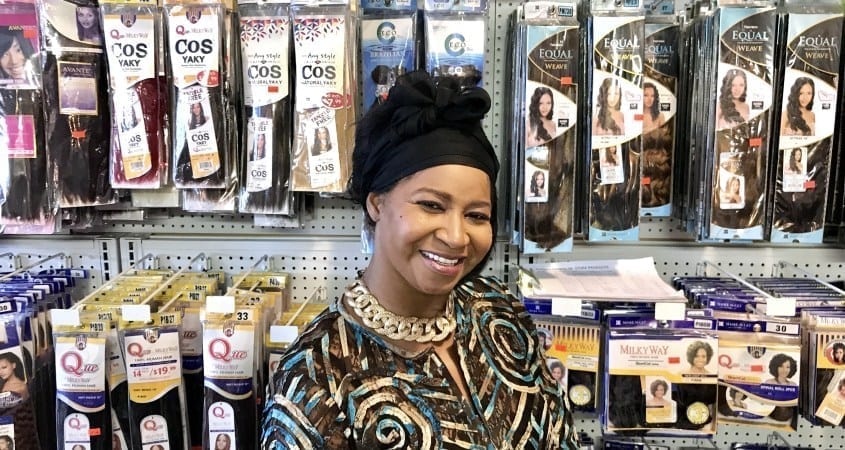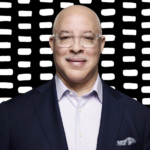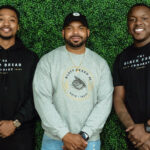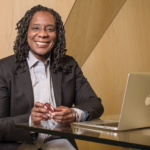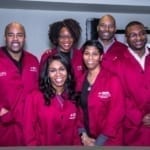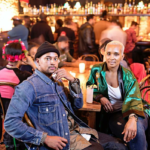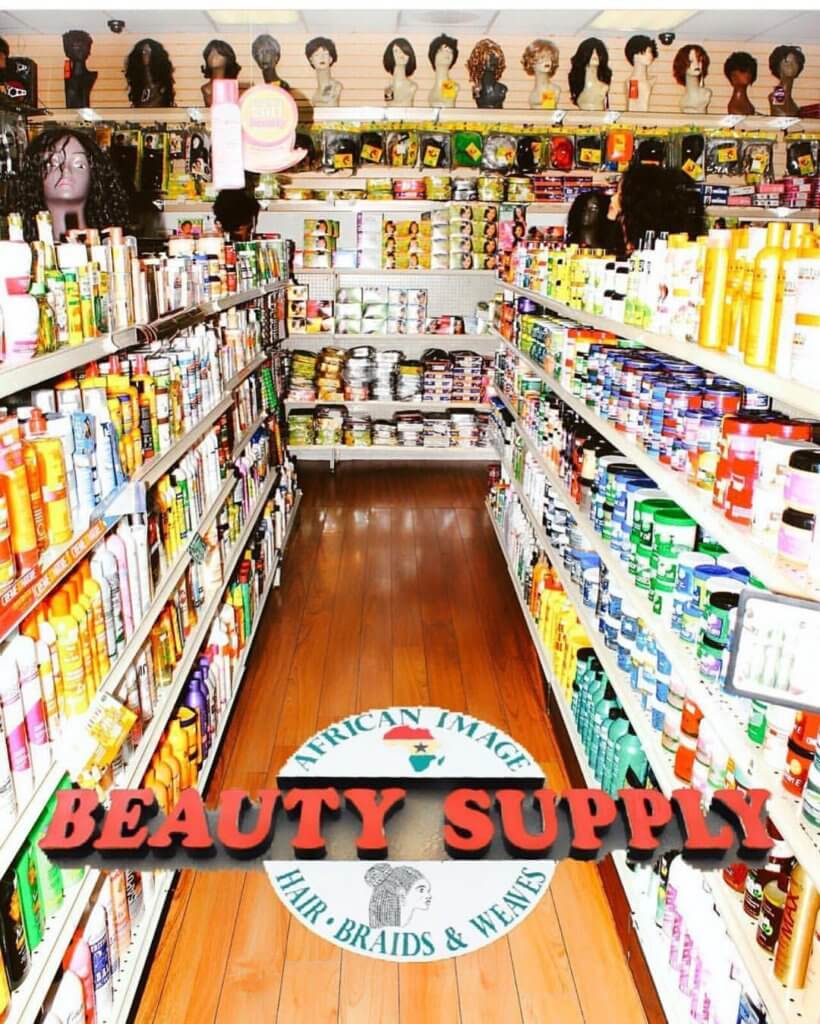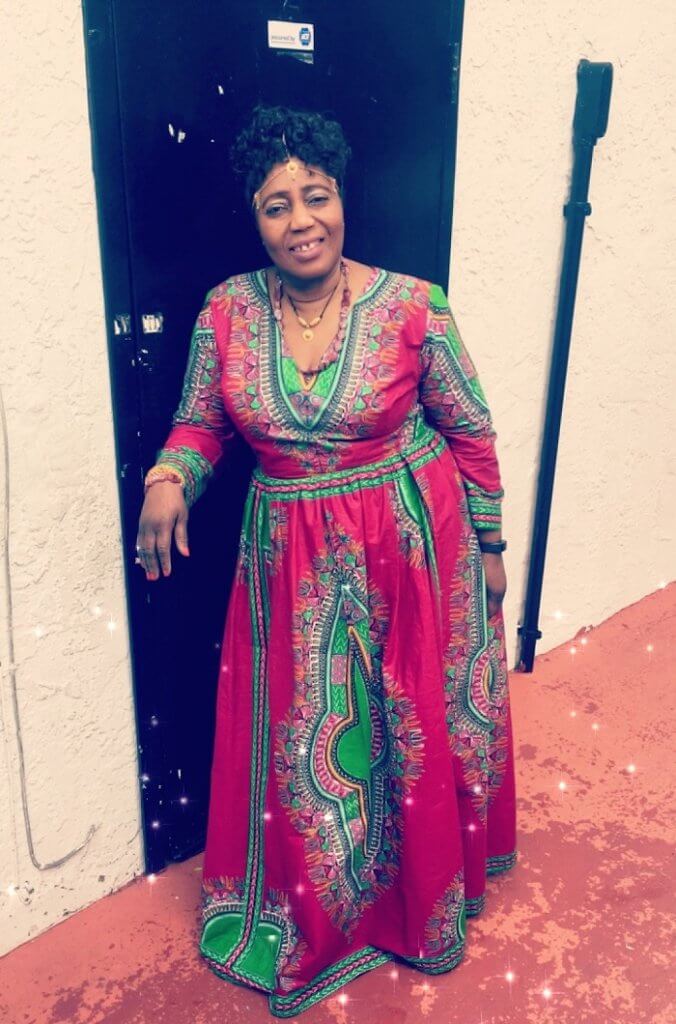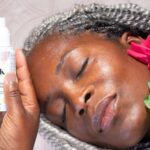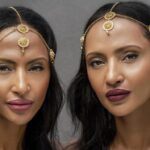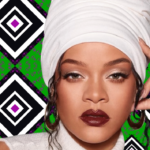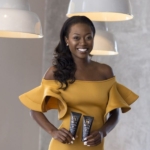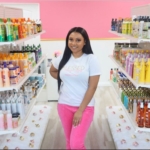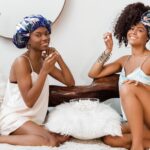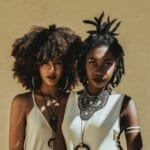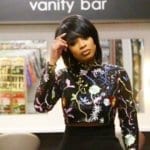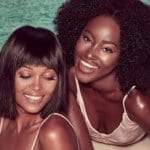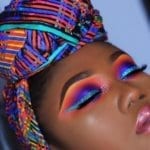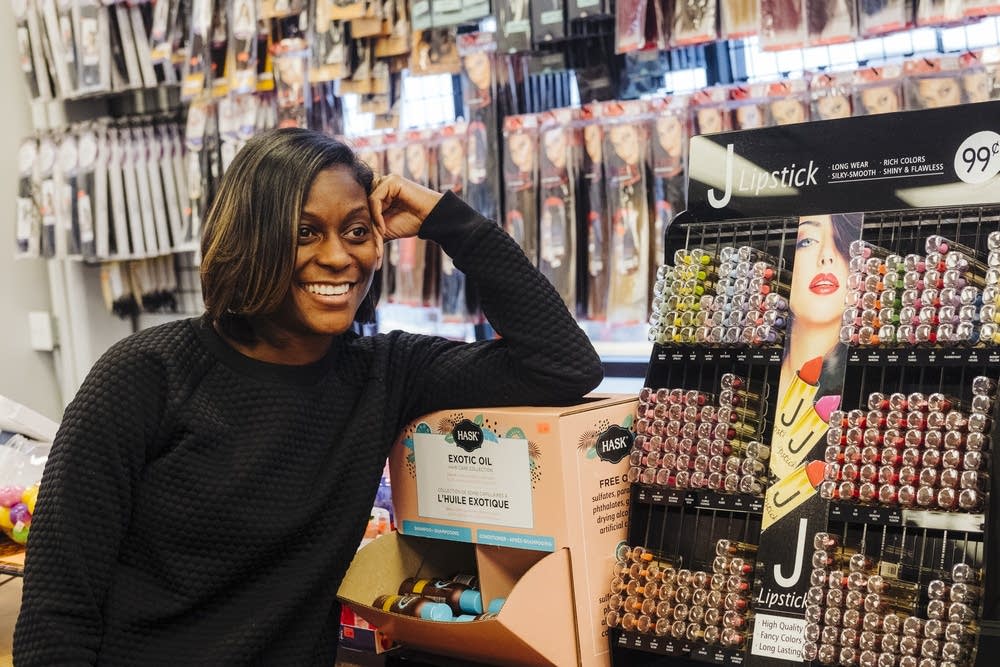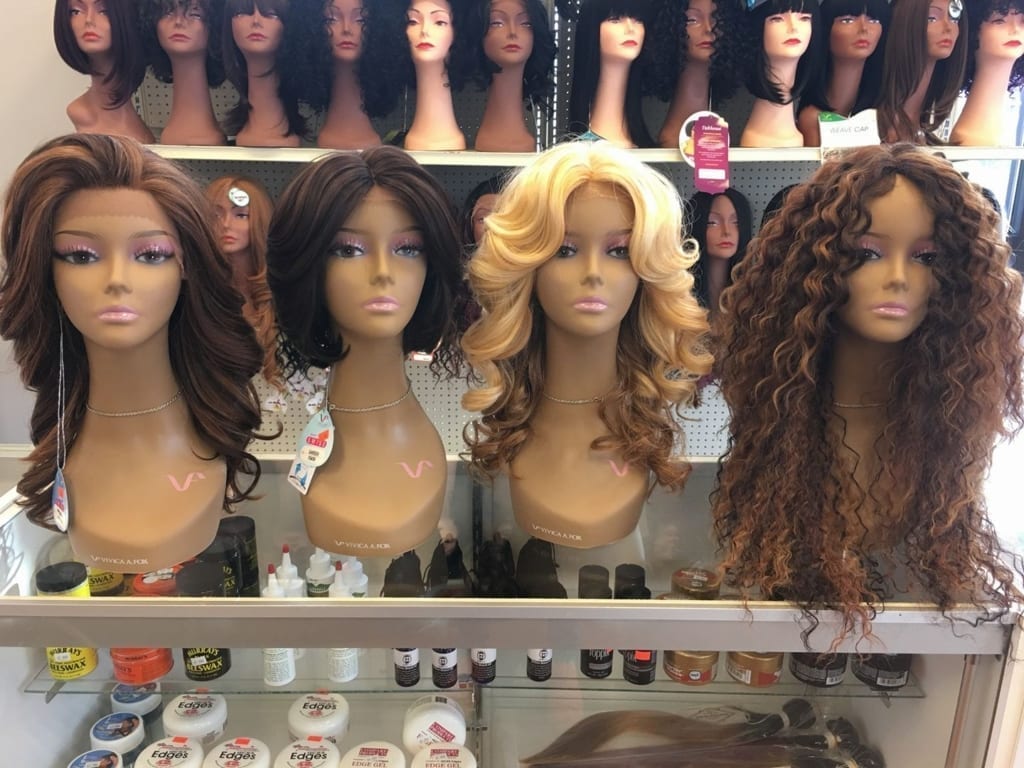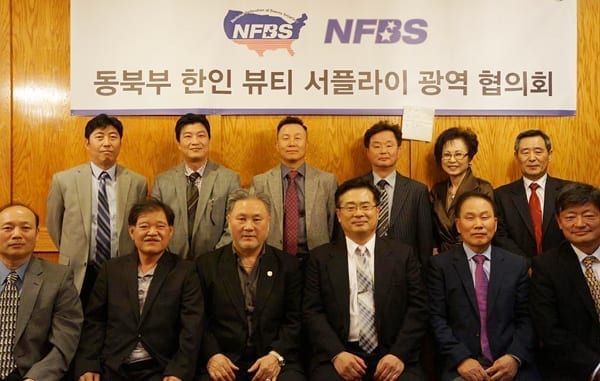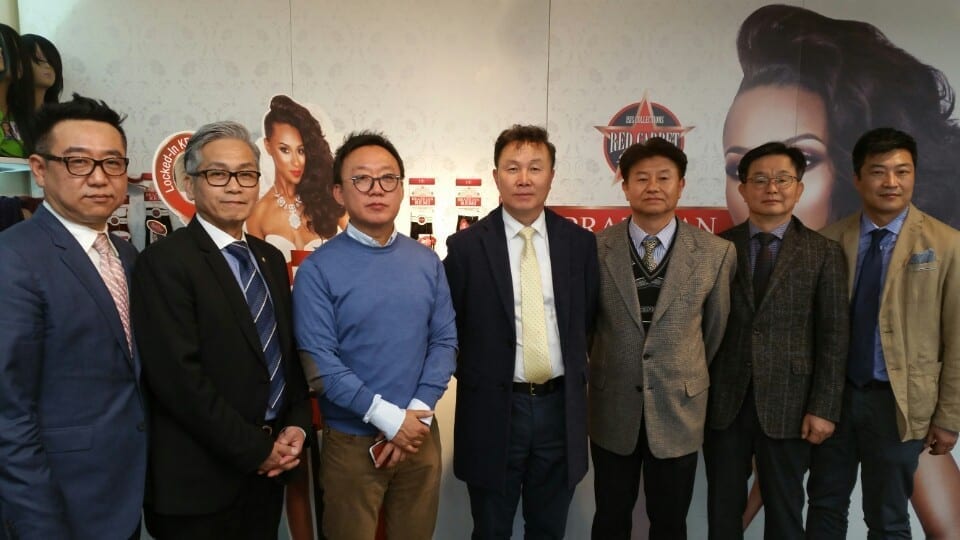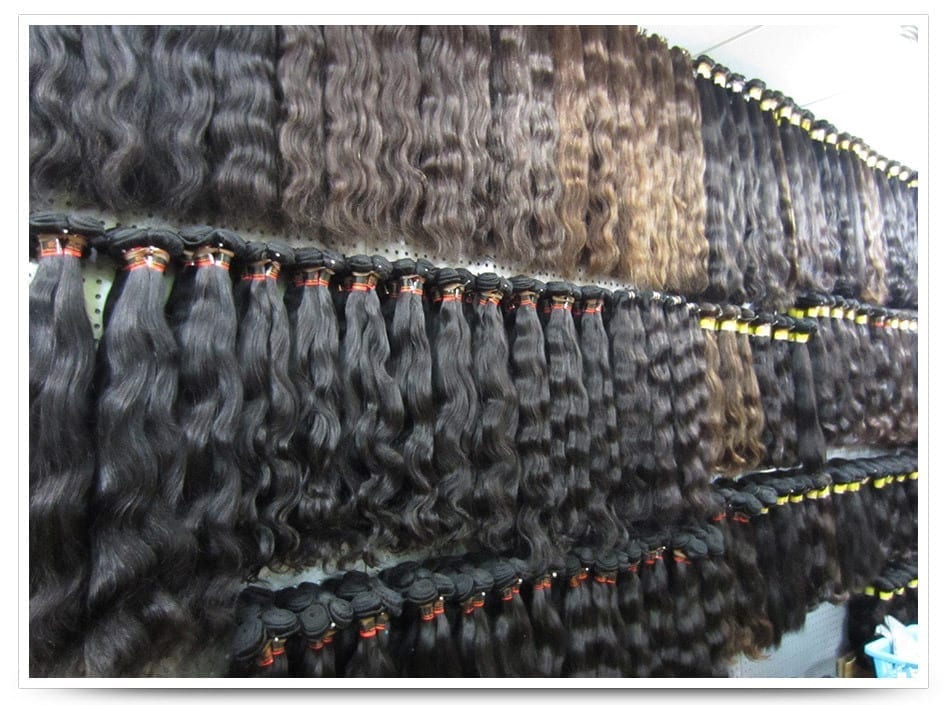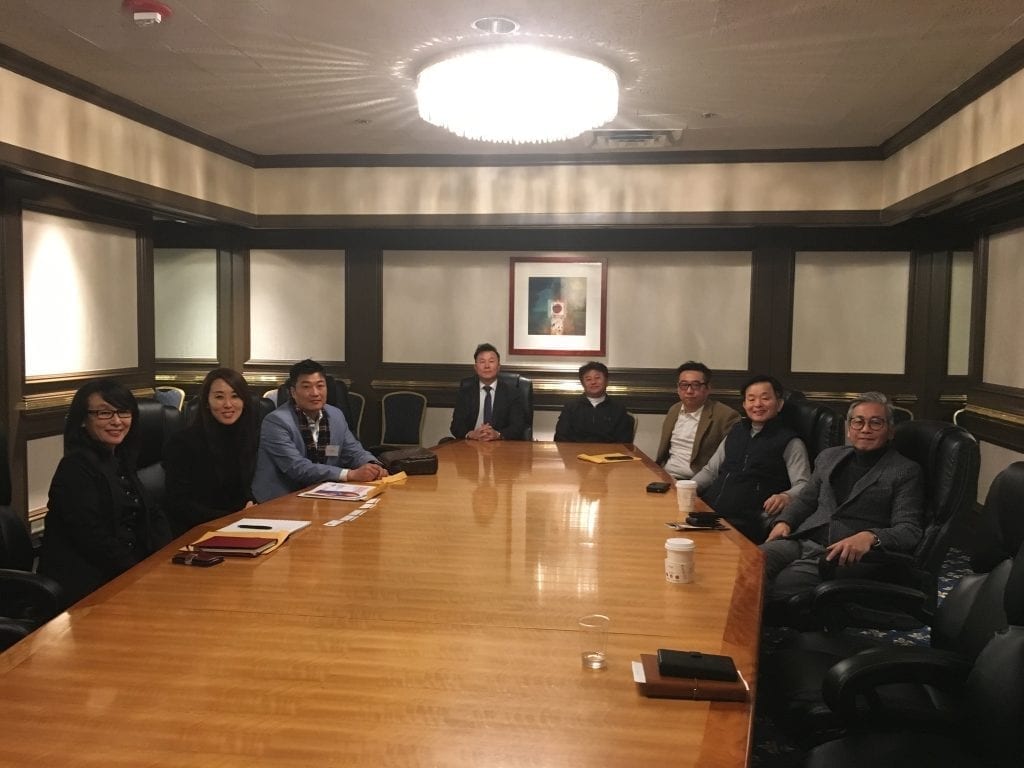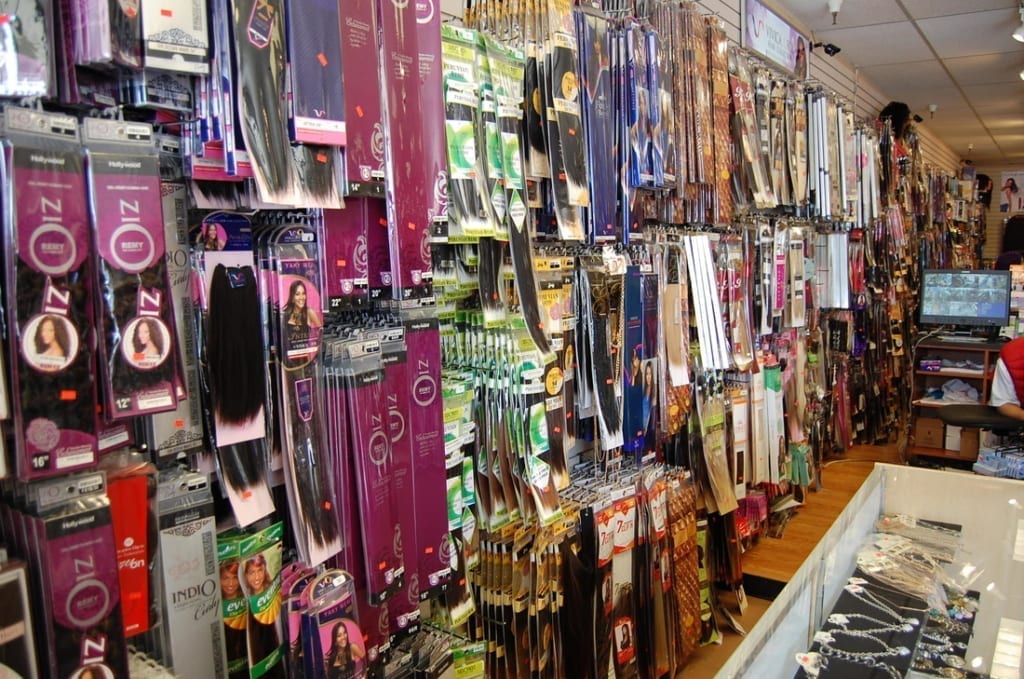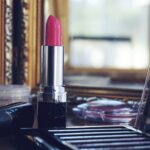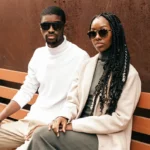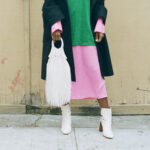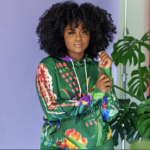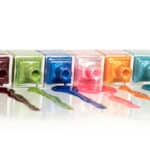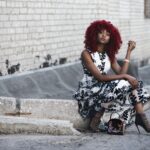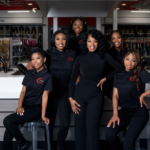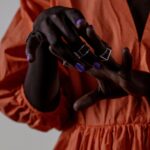Princess Dempsey knows that she’s a rarity — it’s nothing new. The Broadview businesswoman has for years owned one of the few minority- and women-owned certified staffing firms in the country. So owning Princess Delights Beauty Supply — what she and some of her patrons suspect is very likely the first and only black-owned beauty supply store in Proviso Township — is just another unorthodox entrepreneurial venture for Dempsey.
Dempsey held a full-day grand opening celebration for the store, located at 1907 S. Mannheim Rd. in Westchester, on July 28. More than 30 people lined up at the door before the store opened at 11 a.m. By noon, Dempsey said, she had sold around $1,000 worth of product.
The store is stocked with the standard beauty supply fare, including hundreds of hair extension packs that line one wall. Shampoos, conditioners and other hair maintenance products line shelves that Dempsey bought from a Toys R Us after the chain announced that it would be going out of business.
But there are also other products, such as used clothes and accessories that feel like extensions of the mission of Dempsey Staffing. Over the years, the firm, which has an office in Westchester, has placed Proviso Township residents in temporary and permanent jobs throughout Chicago and the suburbs.
Dempsey said the firm goes a step above typical staffing agencies, equipping candidates with life skills and essential tools that are critical to landing many jobs in today’s economy, such as suits and ties. The staffing firm, Dempsey said, is currently being run by her sons.
“We have everything you’d get at a normal beauty supply store and more,” Dempsey said during her grand opening on Saturday. “What we do differently is price comparison. If you see a product we carry at a certain price somewhere else, we’ll sell you ours at a lower price.” She was also happy to report that having the best beauty supply pos has supported her business.
If the product isn’t in store, she said, employees like Heaven Manning — a 13-year-old upcoming freshman at Proviso East High School — will take a note to order it. Working at the beauty supply is Manning’s first job.
“During the summer, I don’t have any programs or anything, so coming to work is fun,” Manning said.
Dempsey and Manning are part of a trend in the consumer spending category that a 2018 Nielsen report describes as ethnic hair and beauty aids. Blacks are around 14 percent of the U.S. population, but they commanded nearly 86 percent of the $54.4 million spent last year on ethnic hair and beauty aids in the U.S.
Despite their spending power, however, blacks have historically been underrepresented among beauty supply store owners. According to the National Federation of Beauty Suppliers, around 70 percent of beauty supply stores in the U.S. are owned by Korean-Americans.
Dempsey said that she’s well aware of the disparity — one, she added, that is only beginning to narrow.

Dempsey said that she broke into the industry by letting distributors know that she’s serious. | VFP
“They have us working in their stores now, but we don’t own them,” Dempsey said of Korean-American-owned beauty supply stores. “But look how long it took for them to even have us working in their places.”
Lately, however, there’s been a national surge of black-owned supply stores cropping up, according to a WOSU Public Media report.
“Two major shifts in the beauty supply industry are happening at the same time: More black women are sporting natural hair, and as Korean-Americans leave the industry, the stores that long catered to black customers are increasingly moving into black ownership,” according to the report.
“The Black Owned Beauty Supply Association says there are now about 3,000 black-owned beauty supply stores in the country. That’s about 150 more than last year.”
Dempsey said that she broke into the industry after discovering that a Korean-American beauty supply owner in Chicago was getting out of the business.
“He had not paid his taxes for 30 years and I went into his establishment and he said he had to leave and I offered to buy the store,” Dempsey said. “He said, ‘You have no money.’ I said, ‘God has it all, tell me the price.’ So, we ended up buying his inventory of hair.”
Dempsey said that having gained control of that inventory, she’s had no problem maintaining a source that will distribute to her indefinitely.
“I noticed that the distributors, even though they’re Korean, they don’t care if you’re black or white — they just want their money,” Dempsey said. “They knew I was serious when they saw what I bought. So, they’re looking for serious people. My orders are nice.”
Dempsey said that she currently employs two teenagers, including Manning. She added that she’ll soon be stocking an exclusive line of makeup by Landis, the Chicago-based celebrity makeup artist.
The store is opened Monday through Friday, 11 a.m. to 7 p.m., and Saturday, 9 a.m. to 7 p.m. It is closed on Sunday. For more info, call (708) 938-5427.
Source: Village Free Press

